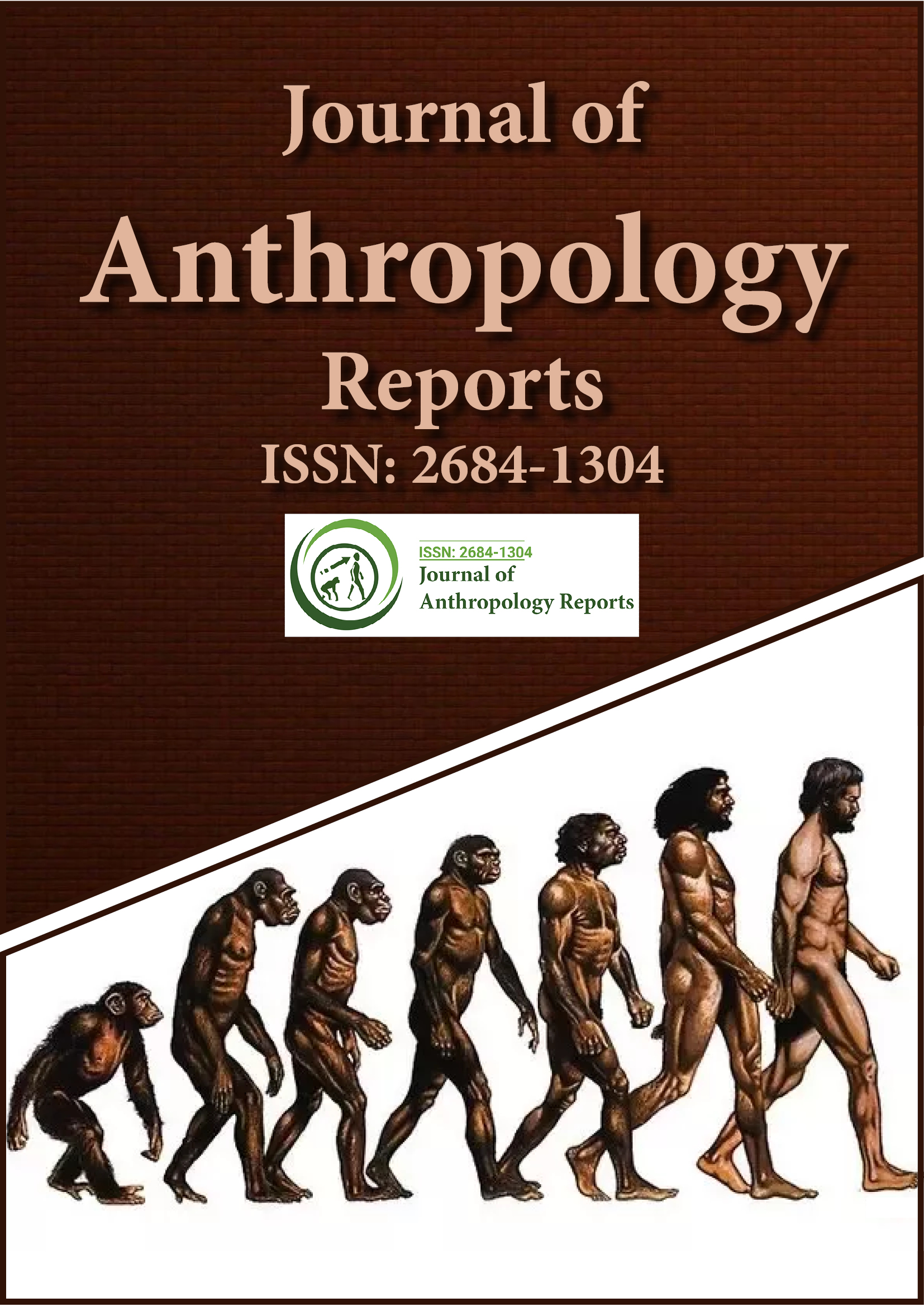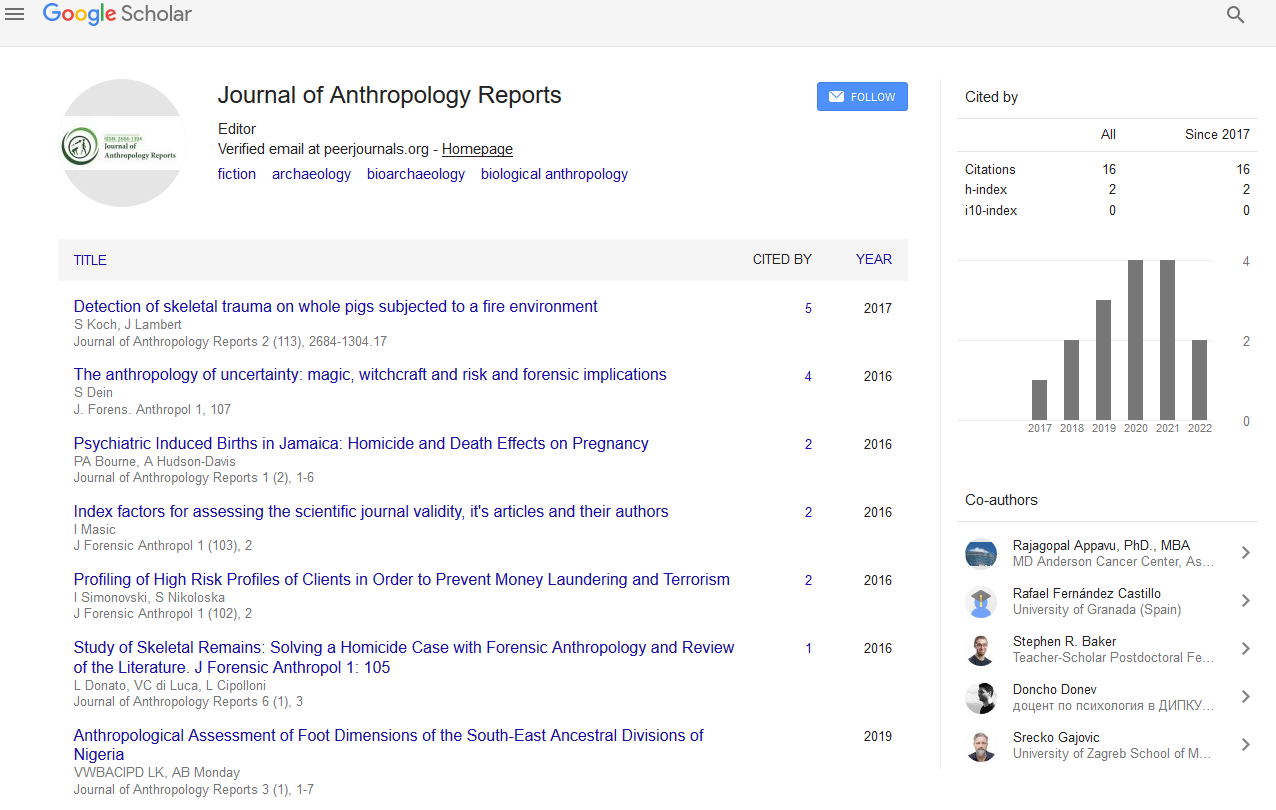Indexed In
- RefSeek
- Hamdard University
- EBSCO A-Z
Useful Links
Share This Page
Journal Flyer

Open Access Journals
- Agri and Aquaculture
- Biochemistry
- Bioinformatics & Systems Biology
- Business & Management
- Chemistry
- Clinical Sciences
- Engineering
- Food & Nutrition
- General Science
- Genetics & Molecular Biology
- Immunology & Microbiology
- Medical Sciences
- Neuroscience & Psychology
- Nursing & Health Care
- Pharmaceutical Sciences
Short Communication - (2022) Volume 5, Issue 5
Characteristics of Culture, Customs and Traditions
Gibbon Rangel*Received: 15-Aug-2022, Manuscript No. JFA-22-18358; Editor assigned: 17-Aug-2022, Pre QC No. JFA-22-18358 (PQ); Reviewed: 31-Aug-2022, QC No. JFA-22-18358; Revised: 07-Sep-2022, Manuscript No. JFA-22-18358 (R); Published: 14-Sep-2022, DOI: 10.35248/2684-1304.22.5.136
Description
"Culture" is a social phenomenon that reflects the characteristics of a particular society. According to this definition, culture is acquired and consists of traits such as beliefs, habits, values, art, music, language, rituals, and knowledge. These cultural traits are shared by almost all members of a specific culture. Individual behavior is influenced by culture. Different ethnicities, nationalities, and even age groups have different cultural practices and traits. Furthermore, culture is not static; it evolves over time. Culture is an abstract concept, not a concrete one. Food, clothing, rituals, art, and so on are only material manifestations of culture. As a result, the term "culture" can refer to a variety of concepts. For example, culture can refer to various fields such as dressing, eating, cooking ingredients, music forms, and so on.
A custom is a widely accepted, traditional way of behaving or doing something that is unique to a specific society, location, or time. Each society, religion, and community has its own set of customs. Customs are an important aspect of culture. As previously stated, custom can be a form of cultural representation. Take for example, a Chinese wedding ceremony. There are distinctive customs and traditions that are observed. All of these traditions reflect Chinese culture. When a particular gesture, behavior, event, or act is repeatedly performed, it becomes a custom. When this is done for a long time and passed down to future generations, it becomes a tradition. Customs are common social practices that are followed by the majority of people in a society. There are both individuals. Every culture and society on the planet has its own set of customs and traditions that have evolved over time. Every society devises methods to maintain peace and order among its members, as well as to serve as a guide for interaction among members of that society. Many people use the terms "customs" and "traditions" interchangeably. This is because the two terms are used interchangeably, and dictionaries treat them as words with similar meanings and family customs. When a father's practice is followed by his son, it qualifies to become a custom. There are also local customs that are followed only in specific areas. When meeting someone for the first time, the most common and universal custom is to shake their hand.
Tradition is derived from a Latin word that means "to deliver." This definition provides insight into what a tradition entails. It is a tradition passed down from generation to generation and has been passed down through successive generations. A religious or social custom passed down through generations becomes a tradition. It appears that customs gradually transform into traditions as they are passed down through generations. Traditions and customs are beliefs and practices that have evolved over time, with the only difference appearing to be the length of time and observance by a larger segment of society. A tradition is a practice that has been passed down through generations and is observed by the majority of people in a society or culture, whereas a custom can be short-lived and observed only at the family or individual level. Furthermore, while all traditions may qualify as customs, not all customs are traditions. There is no clear definition of "custom," but it is undoubtedly a belief or practice that has been passed down through generations. Traditions, culture and customs are beliefs and practices that have developed over time, with the only apparent differences being the amount of time and the extent to which they are followed by a bigger part of society.
Citation: Rangel G (2022) Characteristics of Culture, Customs and Traditions. J Anthropology Rep. 5:136.
Copyright: © 2022 Rangel G. This is an open-access article distributed under the terms of the Creative Commons Attribution License, which permits unrestricted use, distribution, and reproduction in any medium, provided the original author and source are credited.

